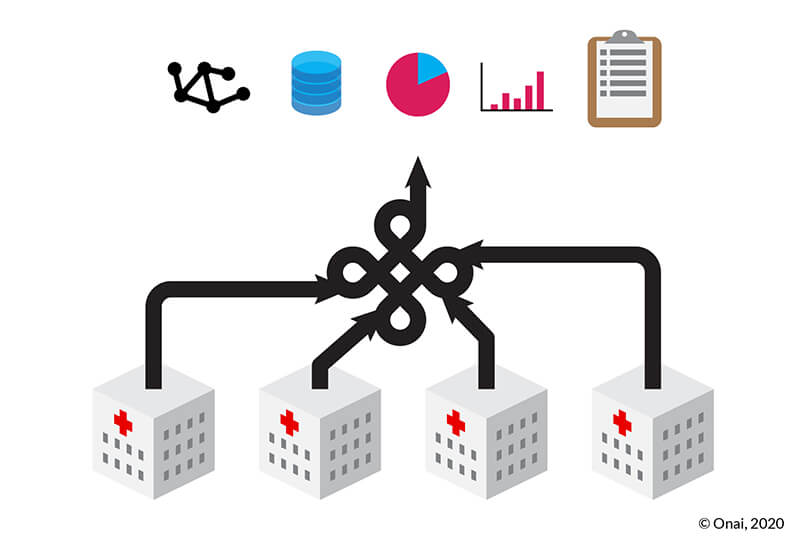
Purdue University is joining with other organizations for an initiative to accelerate global collaborative research on COVID-19 through access to high-quality, real-time multi-center patient datasets. (Image provided)
WEST LAFAYETTE, Ind. – During the COVID-19 pandemic, health care professionals and researchers have been confined mostly to using local and national datasets to study the impact of comorbidities (chronic or long-term health conditions), pre-existing medication use, demographics and various interventions on disease course.
Now, Purdue University is joining with other organizations for an initiative to accelerate global collaborative research on COVID-19 through access to high-quality, real-time multicenter patient datasets. The National Science Foundation has provided funding to develop the Records Evaluation for COVID-19 Emergency Research (RECovER) initiative.
Researchers are testing predictions of artificial intelligence drug discovery platforms from the lab of Gaurav Chopra, an assistant professor of analytical and physical chemistry in Purdue's College of Science, on patient datasets across a network of health care institutions.
 Researchers are testing predictions of drug discovery platforms with artificial intelligence from the lab of Gaurav Chopra, an assistant professor of analytical and physical chemistry in Purdue's College of Science, on patient datasets across a network of health care institutions. (Steve Scherer/Purdue University image)
Researchers are testing predictions of drug discovery platforms with artificial intelligence from the lab of Gaurav Chopra, an assistant professor of analytical and physical chemistry in Purdue's College of Science, on patient datasets across a network of health care institutions. (Steve Scherer/Purdue University image) They are using the technology to find trends and data connections to help better understand and treat COVID-19, with a special emphasis on the impact existing medications have on COVID-19.
"This collaboration makes it possible to do decentralized electronic health record dataset searches from several medical institutions," Chopra said. "Our approach allows a health care professional or researcher to identify patterns in patient responses to drugs, select or rank the predictions from our platform for drug repurposing and evaluate their responses over time. This will help with COVID-19 and other potential pandemics."
Other institutions involved in the initiative include SUNY Buffalo, Cincinnati Children's Hospital Medical Center, the University of Cincinnati College of Medicine and Onai, a company specializing in blockchain/crypto technology.
"Onai is pleased to enable rapid secure research across COVID-19 medical records," said Galana Gebisa, a manager at Onai. "Applying Onai technology, data remains local and private within each participating institution. By querying across institutions, researchers can access a larger, more statistically significant dataset, to learn useful information earlier than they otherwise would."
Chopra's team published a paper in Drug Discovery Today on drug repurposing for pandemics. "Our long-term goal is to not only repurpose drugs, but also design new ones in the context of their proteomic interaction environments in a faster, cheaper, safer, and better manner," said Ram Samudrala, the other senior co-author on this study.
Chopra and his lab team work with the Purdue Research Foundation Office of Technology Commercialization






